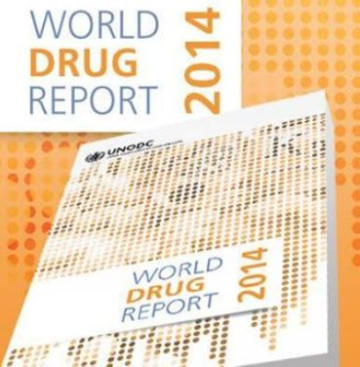2014 The World Drug Report: The Titanic sails at dawn
As it its customary practice, the UNODC released its flagship publication on June 26th, the UN’s designated ‘International day against drug abuse and trafficking’ as well as the occasion of the ‘Support Don’t Punish’ day of action, which seeks to draw attention to the collateral damage of the ‘war on drugs’. So the growing debate over the failure of the international drug control system, which has now entered mainstream political discussion, provides the context for the publication of the most recent World Drug Report.
UNODC Executive Director Yuri Fedotov acknowledged that the Report is being published at a key moment for drug policy. As ever, the UN claims to be external to these disputes and to constitute a neutral source of data, the Report continues to position the UNODC as a supporter of the current drug control regime and the international treaties that underpin it. In his Foreword, Mr. Fedotov refers to the recent Commission on Narcotic Drugs as providing a ‘much needed forum for an open and inclusive dialogue’, and to ‘a shared understanding of a way forward’ to counter the ‘world drug problem’. This, at best, is wishful thinking. The Report’s fundamental terms are not up for negotiation. What exactly the ‘world drug problem’ is (i.e. the lack of access to essential medicines for billions of people, the alienation produced by drug law policing, the market opportunity the system offers to organised crime) is a question that the Report does not ask, let alone answer.
As to the content of the 2014 World Drug Report, the headlining issue recalls a familiar narrative at the UNODC: the stability of global drug use, its containment by the present drug control arrangements. The data provided, though inevitably they can only provide us with approximations, are impressive enough, and will be analysed in depth when IDPC produces its annual response to the World Drug Report (to be released in early October). But for now, in the build up to the UN General Assembly Special Session (UNGASS) on Drugs in 2016, when the consensus of which the UNODC speaks is fast disappearing, a more clear-eyed recognition of the facts is needed. As countries around the world grow weary of a system devised in very different circumstances and that fails to meet the policy needs of the contemporary age, the time for platitudes is surely past.
http://idpc.net/blog/2014/07/2014-the-world-drug-report-the-titanic-sails-at-dawn
